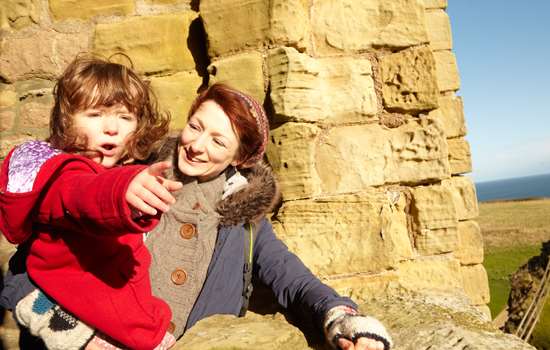1. Experience an action-packed summer of events
Experience the thrill of our blockbuster historical events. Witness clashes of brave Roman soldiers, gallant medieval knights, and swashbuckling pirates who sailed the English seas. It's a summer of legends with something for everyone at our historic places around the country.
Little explorers can also help Noble, our trusty guard dog, find his shadow. Follow the quest through the grounds or gardens of our historical sites to become the ultimate adventurer.
Find out more2. Take advantage of fantastic savings
Keep the ‘feel-good summer’ feeling all year round with 20% off membership by annual Direct Debit. Use code: SUMMER24 and enjoy unlimited access to over 400 sites, for yourself and up to six children. Other benefits include an exclusive Members’ Magazine and Handbook, as well as free parking, and reduced price entry to hundreds of exciting events.
Days out for the family are now even better value for members. This summer, members spending £10 or more in 30 participating cafes will receive up to two free children's lunch bags.
3. Uncover unique destinations
With so many fascinating sites to choose from it can be hard to decide where to visit, and you might be unaware of hidden gems on your doorstep. To give you a helping hand we’ve gathered together some of our favourite historical places, enabling you to make the most of your summer with our recommendations.
Let us inspire your next castle adventure, family picnic, or historic garden visit. Search by region to find detailed suggestions for the best days out near you.
Find out more4. Get involved with our feel-good summer reel
Share your videos of ‘feel-good summer’ days out for the chance to feature on our social channels and win exciting prizes from our shop.
To enter simply upload a 5 to 10 second clip of your days out at our historic places. This could either be in the comments section of our weekly #EHSummer Facebook competition posts (@EnglishHeritage) or as an Instagram post by tagging @EnglishHeritage and using #EHSummer.
We’ll be picking our favourites to share each week and giving out prizes to a selection of winners, so make sure to share your best clips for a chance to win! T&Cs apply.
Find out more5. Enjoy days out without a car
You don't need a car to have a great day out in history. Many of our historic places, like world-famous Hadrian’s Wall, can be visited by public transport. Whether you're looking to visit one of our sites by bike, bus or on foot, we’ve compiled a list of the most easily accessible ones.
We are working with Good Journey to encourage car-free adventures where possible. Travel by train, bus or bicycle to receive a 20% discount off walk-up admission prices at selected sites.
Find out moreThe month in history
- On 1 July 1858, a paper by the scientist Charles Darwin was presented to the Linnean Society of London on his groundbreaking Theory of Evolution by natural selection. The paper formed the basis of his book published the following year, ‘On the Origin of Species’, which is considered the foundation of modern evolutionary biology. Today you can visit Down House, Charles Darwin's family home for 40 years.
- The Roman Emperor Hadrian died on 10 July 138 CE. He oversaw the building of a 70-mile wall marking the north-west frontier of the Roman Empire. Several forts and settlements partially survive on Hadrian’s Wall, including Housesteads Roman Fort and Corbridge Roman Town.
- Emmeline Pankhurst was born on 15 July 1858. Emmeline led the militant campaign for women’s right to vote in the early 20th century, better known as the ‘suffragette’ movement. A bill giving women equal voting rights to men eventually passed through Parliament in 1928, just weeks before Emmeline’s death that November.
- Rosalind Franklin was born on 25 July 1920. She is now acknowledged to have pioneered the study of molecular structures. Most notably, her research into DNA molecules helped Watson and Crick identify the structure of DNA in 1953. Her former London home in Chelsea is now marked by a blue plaque.
More to Explore
-

Inspire Me
Our historic sites offer something for everyone. Here we have gathered some of our favourite features, events and things to do to inspire your next visit.
-

THE ENGLISH HERITAGE PODCAST
Join presenter Charles Rowe as we bring the history of our sites to life with news, views and expert interviews across over 150 episodes.
-

Become a member today
Enjoy unlimited access to hundreds of historical places with an annual membership. Plus there's free entry for up to six children. Memberships start from £53 a year.
